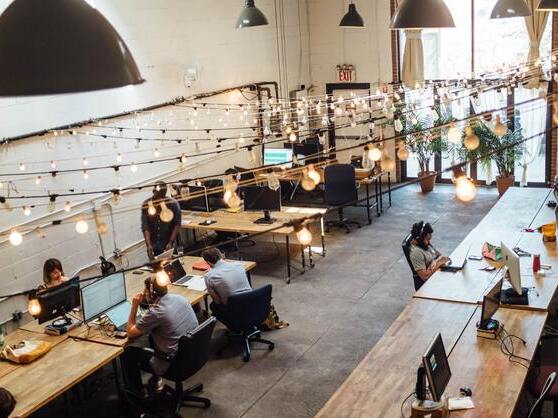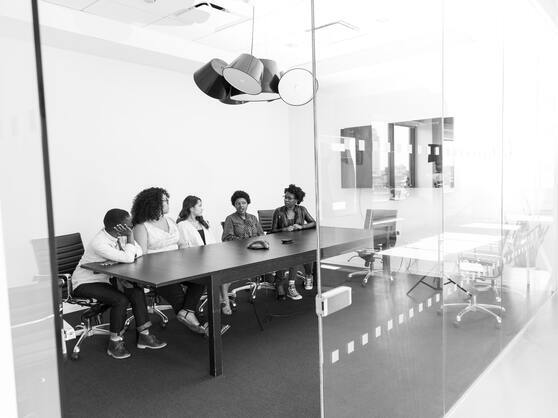Slowly, silently, like survivors emerging from a vault after a nuclear exchange, people are beginning to emerge from the protective cocoon that has been coronavirus lockdowns. While as of this writing plenty of folks are still hunkered down dreaming of the day when they can see the next superhero film in theaters, plenty more are hitching up their britches and flipping the “Closed” sign in their lives to “Open.” Unless you’re a small business owner that is- in which case, you’re literally flipping that sign to “Open.”
But what does that mean, exactly? How do small business owners and entrepreneurs re-start their long-stalled engines and reopen their businesses after COVID? It’s a tough and tricky situation, especially seeing as the virus isn’t leaving uniformly- nor are the cumbersome and frankly burdensome corona regulations that small business owners have had to deal with.
To help you with what’s frankly going to be a bananas task, we put together a list of the common questions and subjects that small business owners around the nation have been concerned about when it comes to re-opening after the coronavirus.
“Cleanliness is next to managerliness”- Spongebob Squarepants
Disinfectant. It’s been our friend for over a year now, and the odds are it will continue to be our friend for a good while to come. But how much do you need? How much is too much? How little is too little? If you want a huge amount of detail, check a CDC report on the whole shebang (that’s the US government’s Center for Disease Control). If you want the skinny, here are a few of the biggest questions regarding a very un-sanitized subject.
Do I need to disinfect my workplace if it has been unoccupied for 7 days?
Good news! The virus may have lasted a long time in our minds, but on surfaces, it hasn’t been shown to last more than seven days. You should still clean, because…it’s gross if you don’t? But when it comes to the coronavirus, if you haven’t been to your workplace for 7 days and no one else has been—in other words, it’s been closed that whole time—then you don’t have to worry especially about dirty surfaces giving you the ‘rona.
How many times should offices be cleaned or disinfected to prevent COVID-19?
This one is up to you. Maybe you’re an Adrian Monk-type and even outside of pandemic life you still need to clean your doorknobs and surfaces every five minutes.
Well, the good news is that you don’t need to do that even in a pandemic- but you shouldn’t do it once a day either. The CDC urges business owners, who clearly know best how much traffic they’re getting through their stores or places of business, to come up with their own plans- but then to stick with it, and update/evaluate as much as necessary.
Likewise, if you create a bleach/water solution, make sure to make a new batch every twenty-four hours, which is the time period that the CDC says most bleach solutions will be effective for.
Navigating Coronavirus Rules and Regulations
So now this is a pretty dicey situation, especially for small business owners in the United States- they have to pay attention to federal, state, and local rules, the violation of which can lead to hefty fines.
What’s made more difficult is that plenty of times these rules seem to change on the fly, to the degree that one could assume it’s almost sort of guesswork. But either way, rules are rules, and they must be followed to avoid losing even more cash than coronavirus has probably already cost your business.
How do I follow federal coronavirus regulations?
Well, truth be told, the federal government *is* putting out regulations- but mostly for itself. Due to the states having so much power in the US, the federal government can’t regulate most small businesses when it comes to the coronavirus. Truth be told, it probably doesn’t even want to regulate them- the United States is frankly, an immense country, and coronavirus is ravaging different regions at sometimes vastly different rates.
How do I follow state or local coronavirus regulations?
There is no federal website which has constant updates on all of the constantly changing state and local coronavirus regulations. Your best bet? Check out your local Chamber of Commerce. They’re built around helping small businesses, which means the odds are that they’ll be able to clue you in on what your small business is supposed to be doing, and what you don’t have to worry about doing.
But when in doubt, contact your state or local government! There’s no reason not to. Picking up your phone and placing a call (or sending an email, if things aren’t time-sensitive) are the best way to get up-to-date information about when you can re-open your small business after COVID.
What are the biggest mistakes small businesses make when re-opening after coronavirus?
This one is pretty important, which is why it’s getting its own section. After a year of on and off closures, it’s understandable that you’ll be chomping at the bit to get back in action.
But here’s the thing- before you do anything, take a deep breath and pause. Lots of people are still incredibly nervous about catching the coronavirus and will probably continue to be so even after it is no longer rational to be afraid to go to businesses. Some businesses have even found that opening up immediately was not inherently profitable. So take some time to calculate, to figure out exactly how much you’ll need to take in, and to figure out how much you’ll be spending by being open.
Speaking of being open – don’t be afraid to mess around with your hours. Obviously, when running a small business some consistency is necessary; in an ordinary situation, changing your hours on a whim would only serve to lose you customers and hurt your reputation. But this isn’t a normal situation; people are going to be understanding if your hours have suddenly changed and you are only open from 9 to 12, or not at all on Wednesdays.
For those businesses which have been able to stay open in the pandemic- don’t throw the baby out with the bathwater. If something was working, be it a switch to digital or some other shift, maybe try to keep it going in the future?
What should businesses do during the disease pandemic?
What happens if the lockdowns come back? Well now that’s the fear, isn’t it? What happens if we start coming back, the vaccines are flowing, and them BLAM, some random variant comes out of who knows where and we’re suddenly back to square one?
This is where that “don’t throw the baby out with the bathwater” comes back into play. Keep the strategies you were using if you stayed open during the pandemic.
And if you didn’t stay open? Well, think proactively. Much as snowstorms in Texas probably have made a lot of folks think twice about making fun of their friend who keeps a week’s supply of potable water at home, why not get ahead of the next variant closures by building your business into a more flexible model? At the aforementioned US Chamber of Commerce, they’re on it, with a handy pros and cons list of permanently shifting your business to a more virtual-oriented setup.
Taking your business digital
Taking your business into the digital realm takes consideration; there are a lot of moving pieces (literally and metaphorically) when transitioning to an all-digital business, so, as we said above, don’t’ rush into anything. One of the biggest things to keep in mind, however, is communication. With an all-digital small business, you won’t end up with a single hub from which to have all of your employees.
Fortunately, there’s a way to turn that seeming negative into a huge positive: going with a virtual phone number from MightyCall. MightyCall’s virtual phone number gives you access to a plethora of features, including a digital “headquarters” — an online web panel and Mobile App for iOS/Android. This makes it simple for your employees to make calls with unlimited extensions, assign and distribute calling tasks, get mini-CRM functionality built into their phone, send business texts, and a whole ton of other stuff.
Importantly, your staff (and, naturally, you) can make and receive phone calls with any internet-connected and sound-capable device, making it even easier to complete your physical-to-digital transition. Take a look at our amazing features or learn more about how VoIP works!
We’re almost over the COVID mountaintop…
…and we can see the beautiful, virus-free town below. But there’s still a mountain to climb down from; so while you’re doing so, make sure to follow our above steps, try not to dangerously rush down the slopes, and before you know it, this’ll all be a thing of the past. But your small business won’t be — because you prepared.
Learn more:
Save and complement this guide with our laptop lifestyle guide for small business owners wishing to manage business on the go, then follow up with tips from entrepreneurs on business growth during COVID and an expert look at what the business future will look like post-crisis.




 Reopening Your Business After COVID: How to Get Back Up After Your Business Was Locked Down"/>
Reopening Your Business After COVID: How to Get Back Up After Your Business Was Locked Down"/> 























